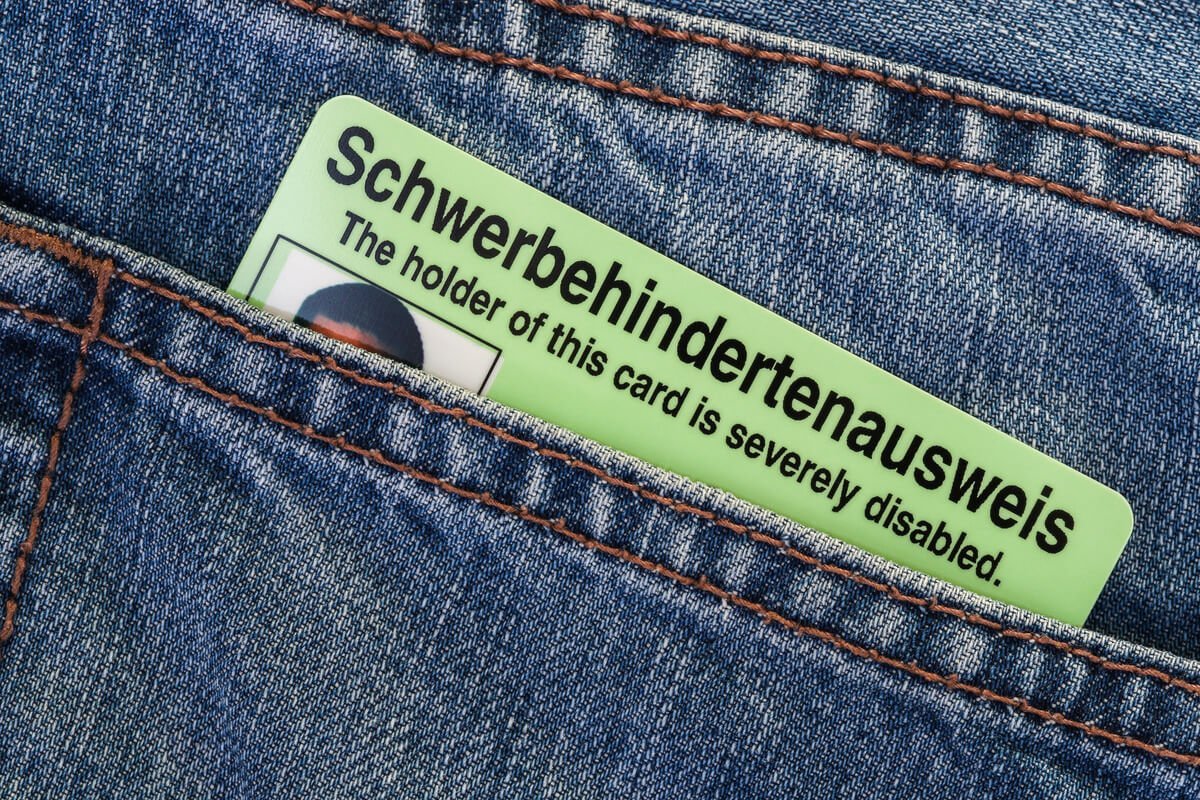

Pregnant employees are protected from dismissal during pregnancy and after childbirth by the Maternity Protection Act (Mutterschutzgesetz). This protection is designed to safeguard the health and financial stability of expectant mothers during a particularly vulnerable period. Employers must adhere to strict legal requirements and cannot terminate a pregnant employee without prior approval from the relevant authority. On this page, you will find an overview of the most important regulations concerning the prohibition of dismissal during pregnancy, including exceptions, employer obligations, and what employees should do if they receive a notice of termination despite being pregnant.
Unfairly dismissed in Germany?
Check your severance pay now – you have only 3 weeks to preserve your severance package!
Key facts at a glance
- Any termination of employment during pregnancy and until at least four months after childbirth is unlawful. Protection against dismissal begins when the employer is aware of the pregnancy at the time of termination or when the employer is informed of the pregnancy within two weeks of receiving notice of termination.
- Only in special cases that are not related to pregnancy, miscarriage or childbirth may the competent authority, as an exception, declare termination during pregnancy to be permissible.
- If the employer is not aware of the pregnancy at the time of termination, protection against dismissal still applies if the employee informs the employer within two weeks.
- Protection against dismissal also applies during the probationary period.
Content
- Prohibition of dismissal during pregnancy and after childbirth
- Termination during pregnancy in the probationary period is invalid
- Exception: Termination during pregnancy only with official approval
- What an employee should do if she receives a termination notice during pregnancy
- Obligation to notify the employer of pregnancy
- Other options for terminating employment during maternity leave
- Frequently asked questions (FAQ)
Prohibition of dismissal during pregnancy and after childbirth
The Maternity Protection Act protects female employees from dismissal during pregnancy and for at least four months after childbirth (Section 17 MuSchG). The aim of the prohibition of dismissal is to protect women from psychological stress associated with concerns about their job and a possible dismissal protection lawsuit. Therefore, any dismissal (ordinary, extraordinary or dismissal for change of position) of a woman is unlawful
- during her pregnancy,
- until the end of four months after a miscarriage after the 12th week of pregnancy
- until the end of her protection period after childbirth, but at least until the end of four months after childbirth,
provided that the employer was aware of this at the time of dismissal.
The employee may also inform the employer of this within two weeks of receiving the notice of termination. If the employee fails to meet this deadline, she may do so immediately if she is not at fault for the failure, e.g. due to absence due to holiday, illness, ignorance of the pregnancy, etc. Protection against dismissal then remains in force.
However, if the employee is at fault for failing to notify her employer, she loses her special protection against dismissal. Protection against dismissal also applies during the probationary period.
Do you need help with German labor law?
Get a free initial consultation now – with an expert on German labor law!
Termination during pregnancy in the probationary period is invalid
The special protection against dismissal for pregnant employees pursuant to Section 17 of the Maternity Protection Act (MuSchG) already applies during the probationary period. The employer may only dismiss a pregnant employee during the probationary period if this has been explicitly declared permissible by the competent authority. If the employer dismisses the pregnant employee during the probationary period without knowledge of the pregnancy, the employee can inform the employer accordingly within two weeks of receiving the notice of dismissal. The protection against dismissal then remains in force. More information can be found in our article on dismissal of pregnant women during the probationary period.
Exception: Termination during pregnancy only with official approval
Only in ‘special cases’ can the competent authority, at the employer’s request, declare termination during pregnancy to be permissible (Section 17 (2) MuSchG). This declaration must already be available at the time of termination.
A ‘special case’ can only be assumed if exceptional circumstances outweigh the woman’s overriding interests. The ‘special case’ should not be confused with the ‘good cause’ for termination without notice. The federal government has issued a general administrative regulation for parental leave. This applies accordingly to maternity leave. According to this, a special case exists if:
- Closure of the business and no possibility of continued employment in another part of the company.
- Relocation of the business (including partial relocation) and no possibility of continued employment at the new location, in another part of the company or in another department.
- The employee refuses an offer of reasonable continued employment in another position in the event of closure or relocation of the business.
- Maintaining the employment relationship after the end of maternity leave would jeopardise the existence of the company or the employer.
- In the case of conduct-related dismissals: In the event of particularly serious breaches of employment contract obligations by the employee or intentional criminal acts by the employee that make it unreasonable to maintain the employment relationship.
- In small businesses under the KSchG (ten or fewer employees): The employer is urgently dependent on a suitably qualified replacement to continue operations, whom they can only hire if they conclude an open-ended employment contract with them.
- The employer cannot find a suitably qualified replacement for a fixed-term contract in order to maintain the employment relationship after the end of maternity leave, and therefore several jobs would have to be made redundant.
List of competent authorities
Here are the competent authorities according to § 17 MuSchG. Affected employees can obtain information here about possible procedures for obtaining official approval of the dismissal:
- Bavaria, Bremen, Lower Saxony, Rhineland-Palatinate: Trade Supervisory Office
- Baden-Württemberg, Hesse: Regional Council
- Brandenburg, Berlin: State Offices for Occupational Safety
- Hamburg: Authority for Health and Consumer Protection
- Mecklenburg-Western Pomerania: State Offices for Health and Social Affairs (Occupational Safety Department)
- North Rhine-Westphalia: District government
- Saarland: State Office for the Environment and Occupational Safety
- Saxony: State Directorate (Occupational Safety Department)
- Saxony-Anhalt: State Office for Consumer Protection
- Schleswig-Holstein: State Occupational Safety Authority
- Thuringia: State Office for Consumer Protection.
Do you need help with German labor law?
Get a free initial consultation now – with an expert on German labor law!
What an employee should do if she receives a termination notice during pregnancy
If an employee receives a termination notice during pregnancy or after giving birth (with or without the consent of the authorities), she should immediately consult a specialist lawyer in employment law.
Even if the dismissal is obviously invalid, the three-week period within which the employee must file a claim with the labour court still applies. If this deadline is missed, the dismissal is considered valid after the three-week period has expired. For more information, see our article on the Unfair Dismissal Protection Act.
Note: In most cases, there is an interest in maintaining the employment relationship during pregnancy and afterwards. However, if you still wish to terminate your employment relationship due to personal circumstances, legal advice is recommended. This applies even if the termination is probably invalid during pregnancy. You should consult a lawyer specialising in employment law. Together, you can discuss how to end the employment relationship with severance pay. Your employer may also have an interest in a mutual agreement. This puts you in a strong position to negotiate a favourable severance payment. However, there may also be significant disadvantages. Legal advice is therefore strongly recommended.
Obligation to notify the employer of pregnancy
Maternity protection begins with pregnancy. Therefore, a pregnant woman should inform her employer of her pregnancy and the expected date of delivery as soon as she knows she is pregnant. The employer may request proof of the pregnancy. This can be provided in the form of a medical certificate or a certificate from a midwife stating the expected date of delivery. The costs for this are borne by the employer.
Unfairly dismissed in Germany?
Check your severance pay now – you have only 3 weeks to preserve your severance package!
Other options for terminating employment during maternity leave
The prohibition of termination in the Maternity Protection Act only applies to termination by the employer. There are other ways to terminate an employment relationship during pregnancy and maternity leave. Here are a few examples:
Pregnant employees can resign themselves
An employee can, of course, also resign herself during pregnancy. She is not bound by the protective provisions of the Maternity Protection Act. The general requirements apply: compliance with the notice period and written form of termination.
Note: If an employee resigns during pregnancy, blocking periods for unemployment benefits are to be expected, i.e. delayed and reduced payment of unemployment benefits. The employee should obtain information from the Employment Agency in advance.
Termination due to expiry of a fixed-term contract, even during pregnancy
The prohibition of dismissal during pregnancy and thereafter applies exclusively to dismissals by the employer. If a fixed-term employment contract ends during pregnancy or during the protection period thereafter, the employment relationship is automatically terminated, regardless of the employee’s pregnancy.
Termination agreements also permissible during pregnancy and after childbirth
An employee may also conclude a termination agreement during pregnancy and thereafter. Termination agreements can have many advantages, but also involve considerable legal and financial risks. For more information, see our article on termination agreements.
Unfairly dismissed in Germany?
Check your severance pay now – you have only 3 weeks to preserve your severance package!
Frequently asked questions (FAQ)

Free initial consultation with a specialist lawyer
- 15min free initial consultation with a lawyer
- Prompt online appointment via Calendly or quick call-back
- Strategy for negotiating your severance pay
- Unfairly dismissed? How the Employment Protection Act can help you
- Special protection against dismissal: What needs to be considered?
- Your rights as a pregnant woman in the probationary period
- Employment ban during pregnancy: your rights under German labour law
- Family Start Time Act (Familienstartzeitgesetz): Important key points of the law
- Maternity protection in Germany: how are you protected?




